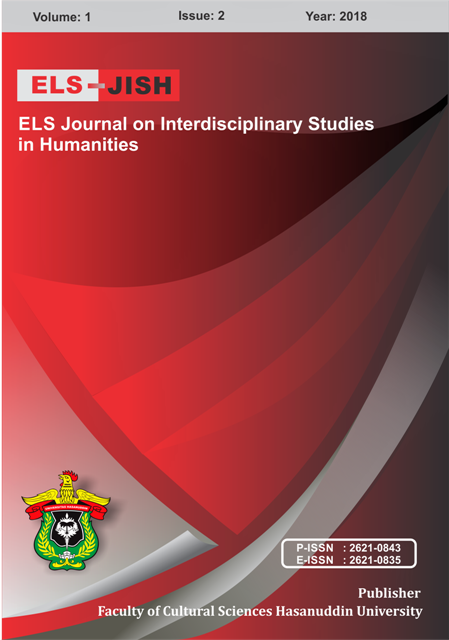Transitivity and Modality in a Marriage Proposal Skit of English and Makassarese
DOI:
https://doi.org/10.34050/els-jish.v1i2.4291Keywords:
Transitivity, Modality, Humour, Participants’ relationship, Proposal marriage skit.Abstract
Two languages are never considered to represent the same social reality in similar way sufficiently, especially in conveying the humour. The objectives of this research are to identify the patterns of transitivity and modality used to represent the humour in marriage proposal skit of English and Makassarese and also to explain the way of English and Makassarese humour maintain power of relationship in marriage proposal skit. This research was conducted by using Critical Discourse analytic approach of Fairclough and Halliday’s Theory particularly in transitivity and modality system of both English and Makassarese. The results of this research show that Halliday’s theory cannot cover all Makassarese data, especially in dividing process of functions in the level of ideational and interpersonal meaning of Makassarese data. In fact, in building their relationship through humour, English speakers tend to use many relational processes which they asked about the identity of their interlocutor and also use many deontic modality (desirability, obligation, and permission). In Makassarese data, speakers tend to use many material processes that they can know what happened with their interlocutor and what is their interlocutor doing. And also they use lack of deontic modality with no obligation category.Downloads
Download data is not yet available.
Downloads
Published
2018-06-26
How to Cite
Wahdaniyah, N. (2018). Transitivity and Modality in a Marriage Proposal Skit of English and Makassarese. ELS Journal on Interdisciplinary Studies in Humanities, 1(2), 117-125. https://doi.org/10.34050/els-jish.v1i2.4291
Issue
Section
Articles

















